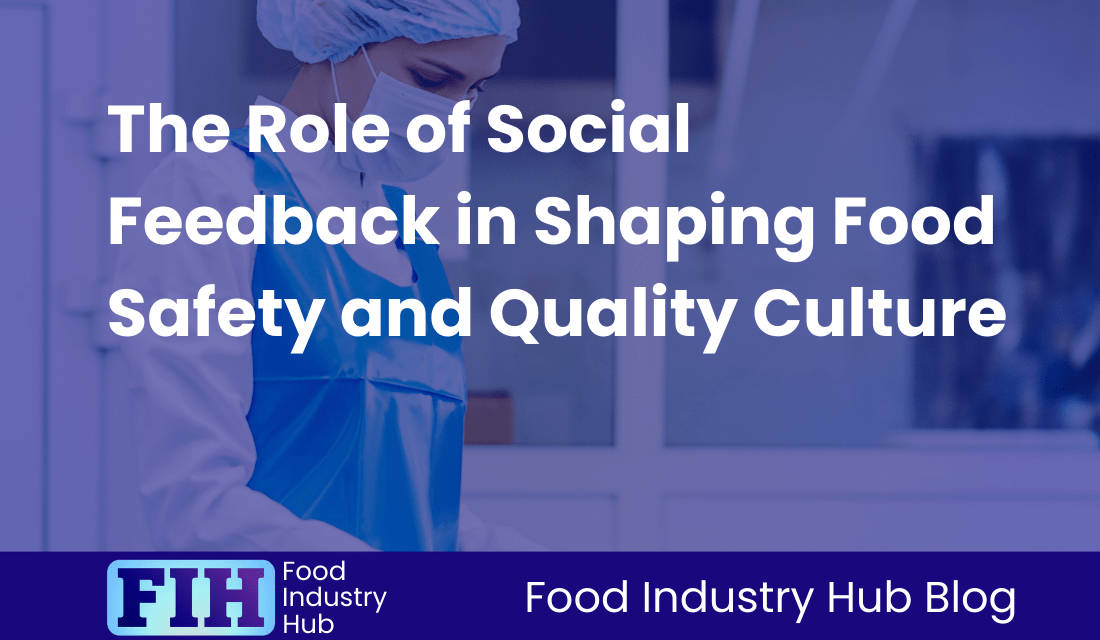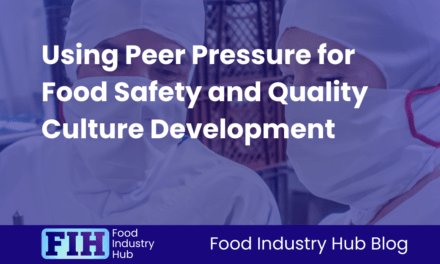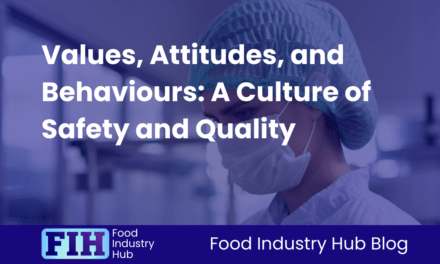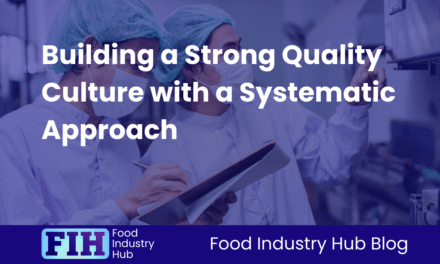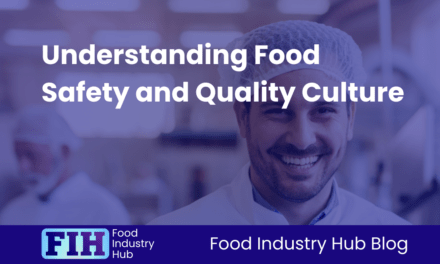Introduction
In the complex landscape of food manufacturing, the influence of social feedback on shaping food safety and quality culture cannot be overstated. Your organisation’s success in maintaining high standards hinges on how effectively social interactions reinforce desired behaviours and values. From fostering a sense of responsibility to driving continuous improvement, the dynamics of social feedback can significantly impact the overall ethos of your workplace. But how exactly does this interplay unfold, and what strategies can be employed to harness its potential for enhancing food safety and quality practices within your business?
This post is part of a collection we’ve put together to explore the topic of food safety and quality culture, and you can explore the topic in more detail by browsing the related content.
Table of Contents
Key Takeaways
- Social feedback reinforces positive behaviours and accountability.
- Timely feedback motivates adherence to standards.
- Recognition programs highlight exemplary behaviours.
- Constructive feedback guides improvement in safety practices.
- Encourage active engagement and continuous learning.
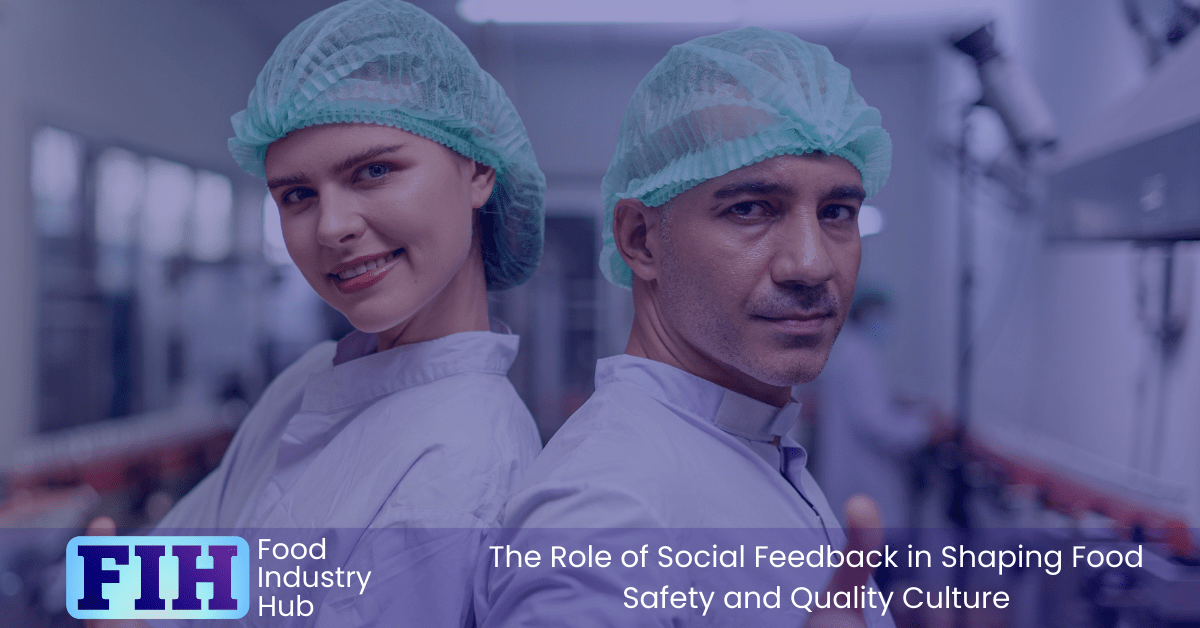
How Social Feedback Influences Food Safety and Quality Culture
Social feedback plays a crucial role in shaping the food safety and quality culture in food manufacturing. It serves as a powerful tool for reinforcing positive behaviours and addressing areas that require improvement.
Socially, you can think that we are both the shout and the echo. When we voice an opinion or take an action, the feedback and reactions from other people influence whether we do more of that type of thing or refrain from acting that way in the future. There is a continual process of action and social reaction that promotes or discourages behaviours and expressions.
It wouldn’t be possible to completely control the nature of feedback given by a social group, but there are things that we can do to influence and steer the values held by the group – and subsequently, the type of reinforcement at play.
By providing employees with timely feedback on their performance related to food safety and quality standards, businesses can enhance awareness and accountability. This, in turn, fosters a culture where every individual understands the significance of adhering to these standards in all aspects of their work.
Through social feedback mechanisms such as team discussions, peer evaluations, and recognition programs, employees are encouraged to actively engage in upholding food safety and quality values. Constructive feedback from colleagues and supervisors can help identify gaps in knowledge or practices and guide employees towards continuous learning and improvement.
Additionally, positive reinforcement through social recognition can motivate employees to consistently demonstrate behaviours that contribute to a strong food safety and quality culture. Ultimately, by leveraging social feedback effectively, food manufacturing businesses can create an environment where adherence to safety and quality standards becomes ingrained in the company’s DNA.

Positive Reinforcement of Food Safety and Quality Values
Positive reinforcement techniques are instrumental in cultivating a strong culture cantered around food safety and quality values. By acknowledging and rewarding employees who consistently adhere to food safety protocols and quality standards, businesses can reinforce the importance of these values throughout the organisation.
Positive feedback not only motivates individuals to maintain high standards but also fosters a sense of pride and ownership in upholding food safety practices.
Recognition programs, such as employee of the month awards or shoutouts during team meetings, can highlight exemplary behaviours and encourage others to follow suit. Additionally, providing constructive feedback in a positive manner can guide employees towards improvement without discouraging their efforts.
Regularly celebrating successes in food safety and quality compliance reinforces the desired behaviours and creates a culture where employees feel valued for their contributions to maintaining high standards.
Positive reinforcement helps establish a foundation of shared values and expectations that drive continuous improvement in food safety and quality practices.

Erosion of Food Safety and Quality Values Through Undesirable Feedback
Undesirable feedback, such as criticism without constructive guidance, can gradually erode the food safety and quality values. When employees receive negative feedback without clear suggestions on how to improve, they may become disheartened and demotivated. This lack of direction can lead to confusion about what’s expected in terms of food safety and quality standards, ultimately resulting in a decline in adherence to food safety and quality ideals.
Consistent exposure to undesirable feedback can create a culture of fear and apprehension within the workforce. Employees may become hesitant to raise concerns or report issues related to food safety and quality, fearing further criticism. This can lead to problems being overlooked or left unaddressed, posing significant risks to the business’s reputation and consumer safety.
To combat the erosion of food safety and quality values caused by undesirable feedback, it’s essential for management to provide constructive criticism and guidance to employees. Encouraging open communication, offering support for improvement, and recognising efforts to maintain high standards can help reinforce a positive food safety and quality culture throughout the business.

Steering and Developing Social Norms
Social norms are the unwritten rules that govern behaviour within a group, influencing how individuals perceive and engage with food safety and quality practices. By actively shaping these norms, you can create a cohesive environment where employees prioritise adherence to protocols and hold each other accountable.
To steer social norms effectively, lead by example. Demonstrate your commitment to food safety and quality through your actions and decisions. Encourage open communication channels that allow employees to voice concerns and suggestions. Consistent reinforcement of desired behaviours through positive feedback and recognition can help solidify these norms within your organisation.
Developing social norms requires time and persistence. Consistency in messaging, training, and reinforcement is key to embedding a culture that values and upholds food safety and quality. By fostering a collective understanding and respect for these principles, you can establish a strong foundation for sustained excellence in your operations.
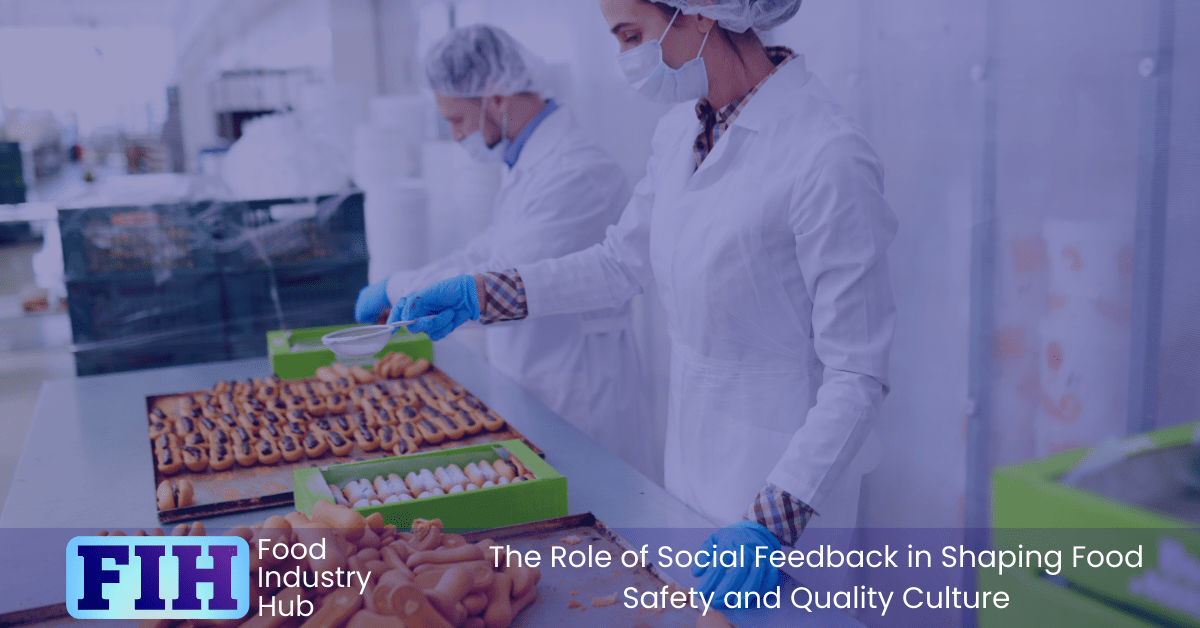
Sign-up for the Food Industry Hub Mail Service
We regularly produce new content for food industry professionals, and the Food Industry Hub Mail Service is the best way to stay up to date with the latest additions.
Signup today to be added to the Food Industry Hub mailing list.
How To Promote Food Safety and Quality Values Throughout a Social Group
Demonstrate a strong commitment to food safety and quality values to instil a culture of excellence within your social group. Lead by example by consistently following food safety protocols, adhering to quality standards, and actively promoting these values in your interactions.
Encourage open communication within the group, emphasising the importance of voicing concerns or suggestions related to food safety and quality. Foster a collaborative environment where team members feel empowered to contribute to the improvement of processes and practices.
Provide regular training sessions to educate employees on the latest food safety assurance processes, quality control measures, and best practices. Recognise and reward individuals who demonstrate outstanding commitment to upholding food safety and quality values, reinforcing the importance of these principles throughout the group.
Use positive reinforcement techniques to motivate continued adherence to these values, creating a culture where food safety and quality are top priorities for everyone.
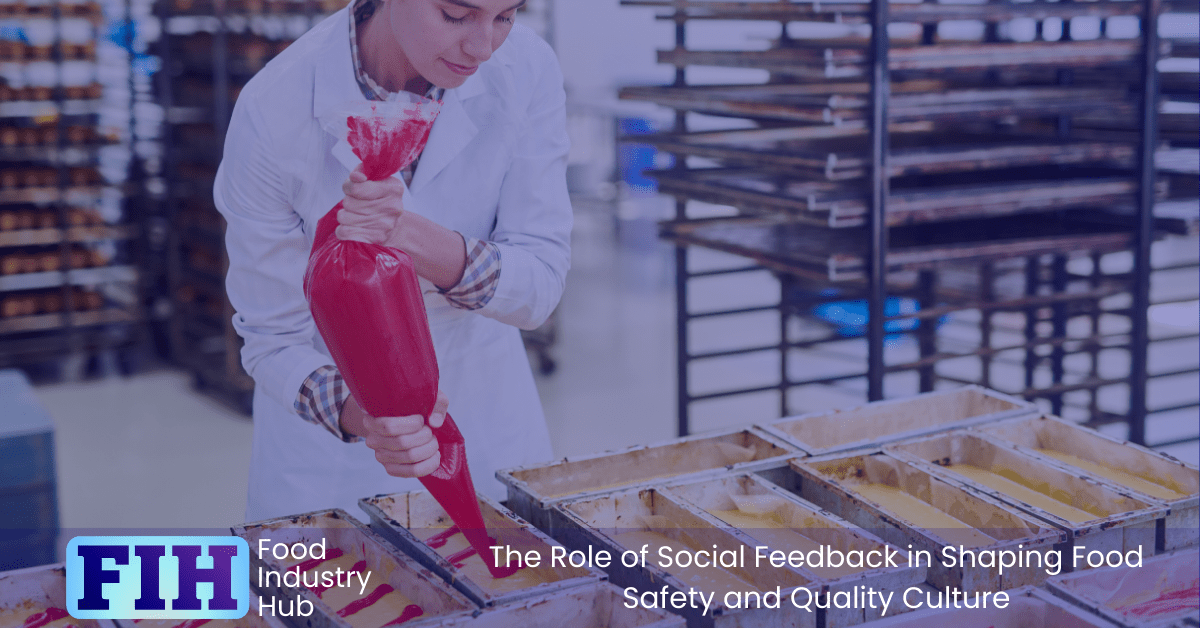
Influences From Management
Management plays a pivotal role in shaping the attitudes and behaviours of employees towards food safety and quality within a food manufacturing business. Effective leadership from management sets the tone for the entire organisation and influences how seriously employees take food safety protocols. When management prioritises and actively promotes a culture of food safety and quality, employees are more likely to follow suit. This can be achieved through consistent communication, providing adequate resources for training, and leading by example in adhering to food safety standards.
The policies and procedures put in place by management play a crucial role in guiding employees on the necessary steps to ensure food safety and quality. Clear guidelines, regular audits, and feedback mechanisms from management help employees understand the importance of their role in upholding these standards.
Management also plays a key role in fostering a work environment where employees feel comfortable reporting any potential food safety issues without fear of retribution. By demonstrating a commitment to food safety and quality, management sets the foundation for a strong food safety culture.
Non-Management Voices and Opinions
Employees at all levels of a food manufacturing business play a significant role in shaping the culture of food safety and quality through their voices and opinions. Non-management voices and opinions are particularly crucial as they often represent the frontline workers directly involved in the production processes. These employees observe daily operations, identify potential risks, and offer valuable insights that can enhance food safety protocols.
Non-management staff members can provide a unique perspective on operational challenges, quality control issues, and areas for improvement. Their feedback can highlight practical solutions that may have been overlooked by higher-level management.
By actively engaging with non-management voices and opinions, a food manufacturing business can foster a culture of transparency, collaboration, and continuous improvement in food safety and quality practices.
Keep in mind, Kaizen encourages a deferential stance to be taken in regard to non-managerial inputs. This is because the individuals who directly carry out tasks and are exposed two operational challenges are arguably best placed to present opportunities for improvement.
Encouraging open communication channels for non-management employees to voice their concerns, suggestions, and observations is essential for creating a robust food safety and quality culture. These inputs can lead to more effective strategies, enhanced training programs, and ultimately, safer products for consumers.
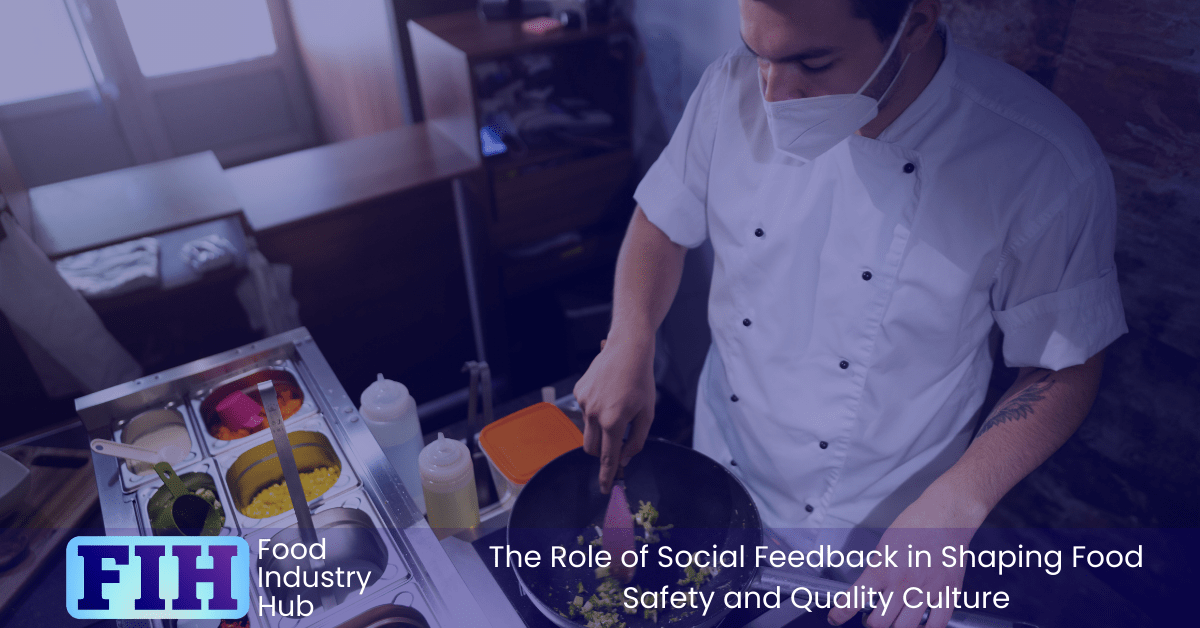
In Summary
Social feedback is a powerful tool in shaping the food safety and quality culture within a food manufacturing business. By providing positive reinforcement, identifying areas for improvement, and promoting accountability, social feedback plays a crucial role in fostering a culture of excellence and continuous improvement.
It’s essential for both management and non-management voices to actively engage in providing constructive feedback to ensure that food safety and quality values are upheld throughout the organisation.
From The Food Industry Hub Knowledge Centre
Featured pages from The Food Industry Hub Knowledge Centre:
Further Resources
Food Industry Hub serves the food industry with a range of digital resources for the benefit of both commercial food manufacturers and food industry professionals.
For food manufacturers, we offer integrated management systems that give every user a direct interface with your QMS.
For food industry professionals, we provide an extensive signposting service in addition to informational content we hope you’ll find useful as you face new professional challenges. We have very ambitious plans to expand the range of services offered, and currently present informational content on management, safety and quality, food safety and quality culture, and professional success.

